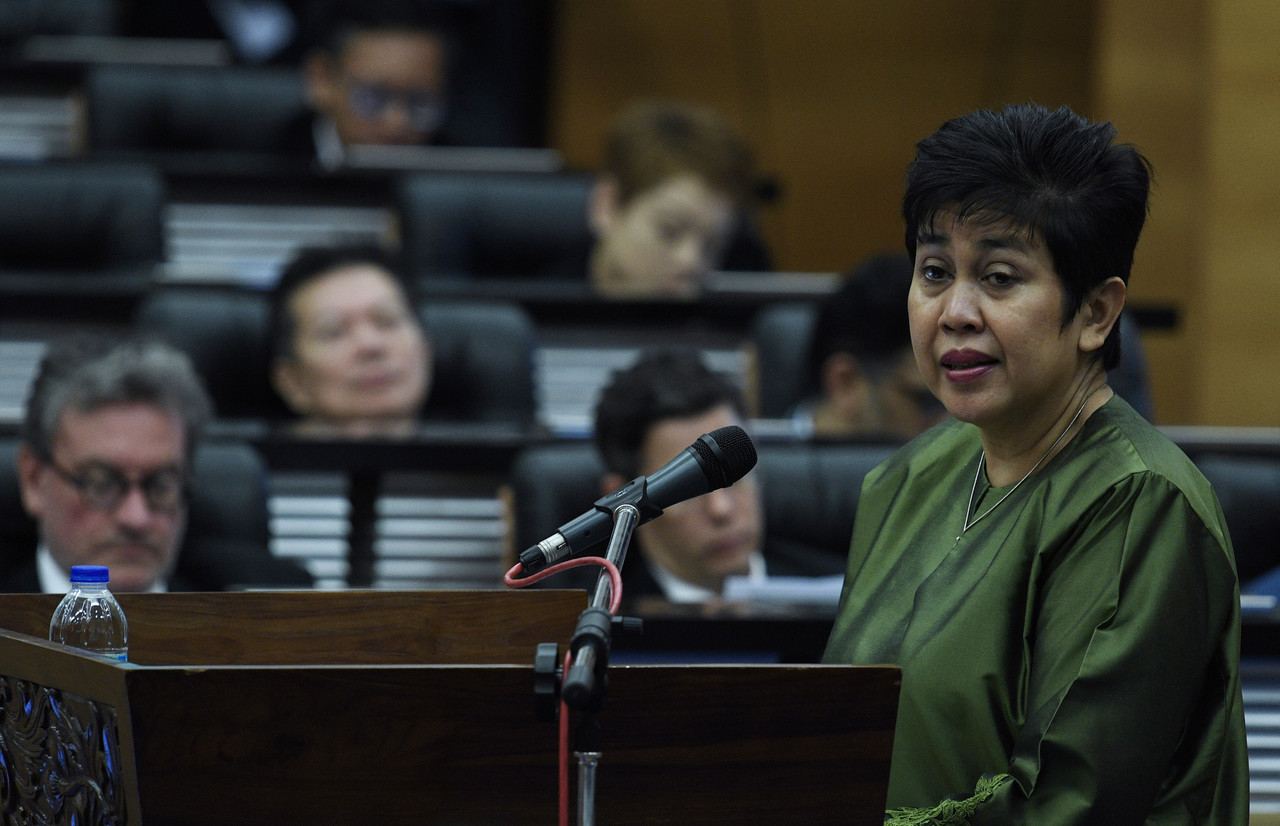KUALA LUMPUR, July 26 (NNN-BERNAMA) — Malaysia needs to urgently embark on structural reform to rebuild the country’s strengths and prepare for the future, said Bank Negara Malaysia (Malaysia’s Central Bank) Governor Nor Shamsiah Mohd Yunus.
She said the reform should begin with addressing the country immediate economic vulnerabilities and complemented by efforts to raise longer-term growth potentials.
Among the vulnerabilities are enhancing Malaysia’s fiscal position, reducing imbalances in the property market and strengthening household resilience to ensure the sustainability of future growth, he added.
“Today, with the global landscape changing more rapidly than ever, with rising protectionism and political efficacy, continued implementation of the structural reform will be paramount for Malaysia to secure a strong foothold in the future,” she said at Malaysian Economy Symposium at Parliament House here Friday.
The inaugural symposium themed “Present and Future” was jointly organised by the Office of the Speaker of Dewan Rakyat (Malaysian Parliament), the Backbenchers Council and the Parliamentary Caucus on Reform and Governance.
Nor Shamsiah said Malaysia must interact fast in introducing reforms to reduce the current economic complexity by creating high-value jobs, extend domestic linkages, develop new and bolster existing economic cluster, and improve inclusivity.
To develop new and bolster existing economic clusters, she said the country needs to intensify efforts to accelerate investment in the downstream environment sectors such as mining and agriculture and look into the possibility of creating new and sustainable products in existing economic clusters such as palm oil and petroleum.
“We must also remain steadfast to introduce initiatives to support the development and modernisation of the digital economy,” she said, adding that this entails a comprehensive intervention to enable business and households to generate income.
She also noted that the Malaysian economic environment is likely to become highly challenging in the immediate term, impacted by a challenging global environment and external headwinds with the ongoing trade dispute affecting Malaysia’s exports with growth to moderate in the range between 4.3 per cent and 4.8 per cent this year.
However, she emphasised that the Malaysian economy remains resilient, with inherent strength working in favour to weather the challenges.
“One of our strengths is multiple engines of growth that is further complimented by a broad export base,” she explained.
Furthermore, she said Malaysia’s financial system remains stable with banks being well-positioned to respond to credit demand from businesses and households.
Financing activity continued to facilitate economic activities with total loan disbursement from January to May this year totalling to US$127.94 billion (RM527 billion, US$1 = RM4.11), with 14.1 per cent higher than average loan disbursement from 2014 to 2018, she said.
“But higher repayment of RM537 billion during the same period led to lower outstanding loan growth.
“Given the moderate economic growth, it was also natural for the demand in financing to be slower as reflected in a lower loan application growth.
“Nonetheless, moving forward, the strength of credit is expected to remain stable in forthcoming (months) with the banks targeted loan growth of 6.0 to 7.0 per cent this year,” said the Governor.
For small and medium enterprises (SMEs), she said beyond financing and financial assistance, more needs to be done to elevate the policy.
It is critical to uptake the initiative to enhance the productivity of SMEs by encouraging firms to engage in more higher value-added activities and utilisation of higher automation in their operations, she said.
SME productivity stood about 37.1 per cent of the gross domestic product despite high financing support of 53.1 per cent of total business loans.
In comparison, Malaysia’s SME contribution to GDP was rather low compared with that of other countries such as Indonesia (60.6 per cent), China (60 per cent), Japan (54.5 per cent), the United Kingdom (51 per cent), and Thailand (42.3 per cent), she added.
NNN-BERNAMA






